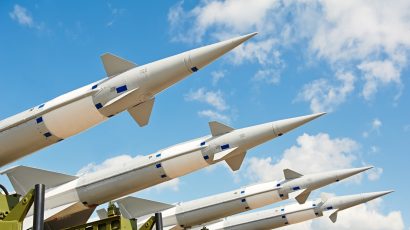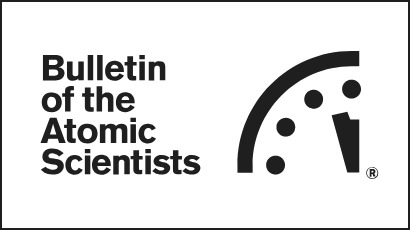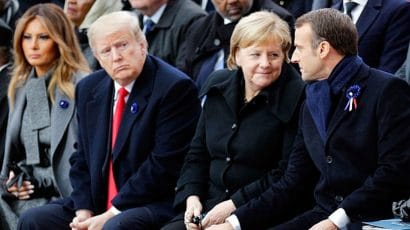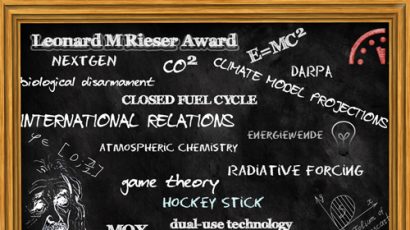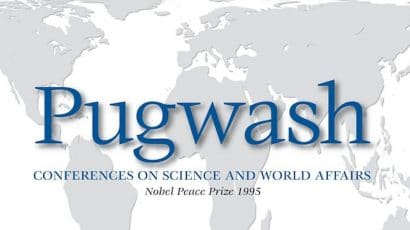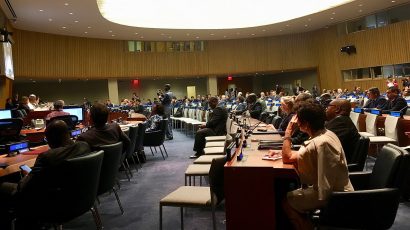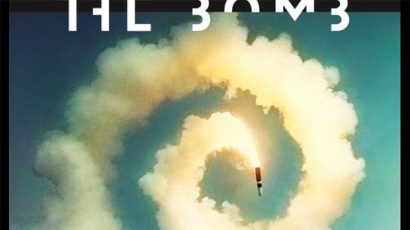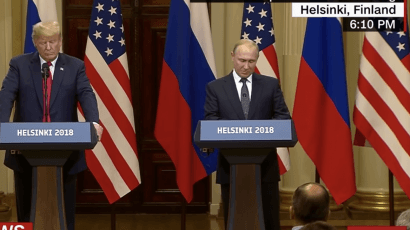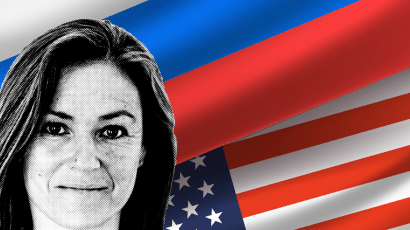Search results for
Don’t panic if the Iran nuclear negotiations fail
Why a Middle Eastern proliferation nightmare scenario is just that—a bad dream.
Beatrice Fihn: How to implement the nuclear weapons ban treaty
In this interview, ICAN's Beatrice Fihn lays out a possible future in which the ban treaty delegitimizes nuclear weapons, and nuclear weapons countries are persuaded to decide that it is best to give up the most fearsome weapons ever created—in those countries’ own interests.
Why Germany won’t build its own nuclear weapons and remains skeptical of a Eurodeterrent
Aggressive Russian policies and the Trump administration’s transactional approach to alliances have put nuclear issues back on the agenda for European governments. Arguments for German acquisition of nuclear weapons have gained no traction among German decision makers, as this would require multiple costly and radical shifts of Berlin’s foreign and security policies.
Transparency: The beginning of the end of nuclear weapons?
If nuclear weapon states report openly on their arsenals, it could smooth the path to disarmament.
Even in the face of Russian aggression, a nuclear ‘Eurodeterrent’ is still a bad idea
Despite doubts about credibility of NATO or US security guarantees, a European nuclear force would still bring more risks than benefits.
Shoddy translation in the Western media is increasing nuclear tensions–again
Western, English-language journalism on Iranian nuclear affairs suffers from misunderstandings and mistakes.
Game changers: How the next generation can tackle the nuclear weapons problem
Millennials will inherit Cold War arsenals, but they don’t have to be stuck with old ways of thinking about what to do with nuclear weapons.
The postponement of the NPT review conference. Antagonisms, conflicts and nuclear risks after the pandemic
A Pugwash document concerning nuclear problems and tensions in the time of COVID-19. The document has been co-signed by an extensive list of Pugwash colleagues and personalities.
Legal and political myths of the Treaty on the Prohibition of Nuclear Weapons
The Treaty on the Prohibition of Nuclear Weapons is an important diplomatic, political, and legal landmark in the longstanding effort to abolish nuclear weapons. It has already been joined by 54 countries but has been rejected by all nuclear weapons states. What legal and political myths surround the treaty’s potential contributions, its relationship to other legally-binding instruments, and its likely future?
Interview with Eric Schlosser: Why we can’t trust the government’s figures about nuclear close calls
The Pentagon’s list of accidents with US nuclear weapons, or "Broken Arrows," includes inaccuracies and is missing key events. Due to the looseness with which a Broken Arrow is defined, there may be hundreds more accidents.
Why the financial community should work to prevent the market and economic shocks of a nuclear incident
The risks of a nuclear incident—including the detonation of a nuclear bomb or dirty bomb, or a cyberattack on a nuclear power plant—have been discussed ad nauseam. Investment icon Warren Buffett and many international security experts have expounded on the significant risks of a nuclear incident in the coming decades. Many experts, in fact, actually … Continued
Blessing the holy ICBMs: The Russian Orthodox Church and Putin
This book reveals how Putin and the Russian Orthodox Church have been working hand in hand lately, with Russian Orthodox priests taking over the role formerly held by political officers during the Communist period. They keep an eye on the spiritual purity of the troops, glorify the military, ensure the soldiers’ reliability during combat—and even bless nuclear weapons, sprinkling them with holy water.
Radiation exposure and the power of zero
The ongoing nuclear power plant disaster in Japan has once again pushed the topic of radiation safety into the public consciousness, while also reminding us that the public continues to doubt government and nuclear industry information on safety and the effects of radiation. Part of this wariness stems from the fact that people cannot detect radiation using their own senses, which creates a dread of the unknown. People are also very aware that the effects of radiation are cumulative and may not appear for many years, so the outcome of a disaster like Fukushima is not easy to predict.
How the Biological Weapons Convention could verify treaty compliance
While chemical and nuclear weapons treaties have systems to verify compliance, the Biological Weapons Convention (BWC), a global pact banning bioweapons, does not. Now, as technologies such as genome editing and AI converge and accelerate, placing powerful capabilities in the hands of a growing number of actors, treaty members are once again discussing the topic of verifying compliance with the treaty.
The Trump-Putin summit produces little. What can come next?
The initial take on the summit between Presidents Trump and Putin does not augur well for US national interests. It is difficult to see how the summit will do much to move US-Russia relations to a better place. The hope, a faint one, is that follow-on discussions between US and Russian officials will begin to … Continued
Time for a different kind of US-Russian arms control
Contrary to popular opinion, Washington and Moscow should strive now to make progress on bilateral arms control. A more ambitious treaty that limits modernization plans can help stabilize a volatile situation.
Too late to counter missile proliferation?
Missiles are a critical component of a country’s nuclear weapons arsenal, which is one reason why concern over missile proliferation is widespread among policy experts. Yet, there is no consensus on how to respond to the WMD missile challenge.
Biden in Geneva: Strategic stability is a conduit for arms control
The agenda of the bilateral summit between Presidents Joe Biden and Vladimir Putin was jam-packed. It was no surprise, however, that the sole joint statement issued was on the topic of strategic stability. This is perhaps one of the few areas where US and Russian interests do and must converge.
Reforming the NPT to include India
For decades now, India has obstinately resisted the idea of joining the Nuclear Non-Proliferation Treaty (NPT), claiming that the treaty is both flawed and discriminatory. Thus, India, a country with a nuclear weapons arsenal, has long stood outside of the nonproliferation regime. Yet recent government statements seem to indicate that New Delhi is rethinking its stance on the treaty--a very timely discussion, given the upcoming 2010 NPT Review Conference, at which reforming the treaty to reflect current security considerations is likely to be a topic of deliberation.
